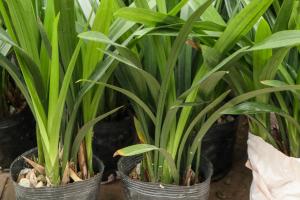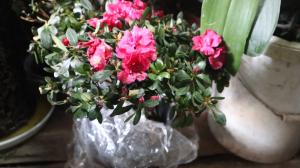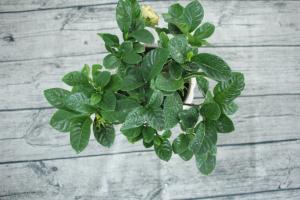Introduction
Tomato plants are one of the most commonly grown plants in home gardens. They thrive in warm temperatures and require consistent watering. However, knowing when to stop watering tomato plants can be a challenge. Overwatering can lead to root rot and other plant diseases, while under-watering can cause stunted growth and dry fruits. In this article, we will explore when you should stop watering tomato plants to ensure a healthy and fruitful harvest.
The Basics of Watering Tomatoes
Before diving into when to stop watering tomato plants, it's important to understand the basics of proper watering. Tomato plants require at least an inch of water per week, either from rainfall or watering. However, the amount of water required varies depending on climate, soil type, and other factors. In general, it's best to water deeply and infrequently, rather than giving the plants light or frequent waterings. This helps encourage deep root growth, which in turn leads to healthy and sturdy plants.
Signs of Overwatering
Overwatering tomato plants can cause a variety of issues. Some of the most common signs of overwatering include yellowing leaves, wilting, and root rot. The leaves may also begin to drop off the plant, and the fruits may become soft and mushy. In severe cases, the plant may die. If you suspect that your tomato plants are being overwatered, it's important to take action as soon as possible to prevent further damage.
When to Stop Watering Tomato Plants
Knowing when to stop watering tomato plants is crucial for their health and productivity. As a general rule, you should stop watering tomato plants when the fruits begin to ripen. This is because too much water during this stage can cause the fruits to become less flavorful and more prone to splitting. Additionally, tomato plants may require less water as they mature and begin to produce fruit.
How to Test Soil Moisture
One of the best ways to determine when to stop watering tomato plants is to test the soil moisture. This can be done easily with a moisture meter, which can be purchased at most garden stores. Alternatively, you can dig a small hole in the soil near the plants and feel the soil with your fingers. If the soil is dry to the touch, it's time to water. If it feels damp, it's best to wait a few days before watering again.
Conclusion
Tomato plants require consistent watering to thrive, but knowing when to stop watering is crucial for their health and productivity. Overwatering can lead to root rot and other plant diseases, while under-watering can cause stunted growth and dry fruits. As a general rule, you should stop watering tomato plants when the fruits begin to ripen. Testing soil moisture can also help determine when to water. By following these tips, you can ensure a healthy and fruitful tomato harvest.

 how many times do yo...
how many times do yo... how many planted tre...
how many planted tre... how many pine trees ...
how many pine trees ... how many pecan trees...
how many pecan trees... how many plants comp...
how many plants comp... how many plants can ...
how many plants can ... how many plants and ...
how many plants and ... how many pepper plan...
how many pepper plan...

































